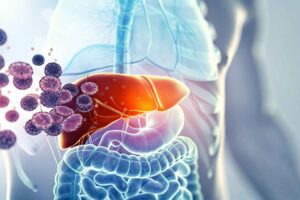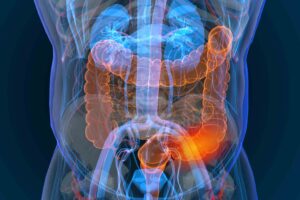Science News
Gynecology
Women with lower DI-GM scores showed a higher risk of infertility, highlighting the potential importance of gut microbiota diversity as a factor in female reproductive health.
Gastroenterology
Fungal metabolites such as FF-C1 may offer a new therapeutic approach for treating MAFLD and related conditions.
Dermatology
Certain barriers on the skin prevent easy colonization of new strains and specific life stages, such as adolescence, may be crucial for successful probiotic interventions.
Events
World Microbiome Day: celebrating the invisible allies transforming health, business, and the planet
With the theme “Microbiome 101: What You Need to Know”, this year's WMD makes a bold and timely move: bringing microbiome science back to basics, and straight into the hands…
Gastroenterology, Scientific research
Even small differences between strains of gut bacteria—often within the same species—can sway how these microbes interact with the human body and influence disease outcomes.
Scientific research, Pediatrics
A microbiota-mediated macrophage-dependent mechanism may be used to reduce diabetes incidence in vivo.
Oncology
Genetic factors can influence tumor-associated microbes, offering insights into colorectal cancer progression and potential therapeutic targets.
Gastroenterology
TCA can help to manage IBD by supporting the gut barrier and influencing microbiota composition.
Postbiotics can selectively enhance beneficial microbes, offering a safe and effective microbiome-support strategy.
Uncategorized
EMIH’s new members bring cutting-edge expertise in biotech, diagnostics, and patient advocacy, accelerating progress in microbiome-based healthcare.
Pneumology, Pediatrics
The findings of a recent study highlight the importance of early-life gut microbes in shaping lung health and add to evidence that microbiota composition can influence asthma risk.
Scientific research
Altered gut bacteria may contribute to fibromyalgia and modifying the gut microbiota could offer a promising approach to reduce symptoms of the condition.
Healthcare professionals area, The Bold Column
A term big enough to capture the profound transformation underway as microbial intelligence moves from fringe fascination to fundamental force.
Events, Healthcare professionals area
The report by MicrobiomePost distills key trends from Vitafoods Europe 2025, highlighting which cutting-edge innovations are shaping the nutraceutical and functional foods industry.
Pediatrics
The gut microbiota evolves throughout early life, especially during key transitions phases such as weaning.
Scientific research
A healthy, diverse gut microbiota is important for mounting strong and lasting immune responses to vaccination.
Vitamins like riboflavin may support health not only through direct effects, but also by boosting beneficial microbial functions.
Oncology
Certain bile acids produced by gut microbes can interact with specific receptors in the body, influencing immune cells to fight tumors.
Gastroenterology
A recent study highlights the potential for dietary interventions in treating C. difficile infection and inflammatory conditions such as inflammatory bowel disease.
Gastroenterology, The Bold Column
The gut microbiome is now being explored not only for its role in health and immunity, but more and more for how it might improve performance. So, what happens when…






















